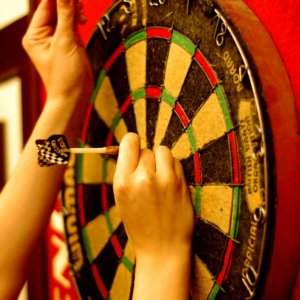Beware the Winning Streak
Doing well, it turns out, is difficult to improve upon.
Topics
When people see or experience a winning streak, they often assume that the performance will continue to improve — and make decisions based on that assumption.
But this belief may be flawed, particularly if individuals are viewing initial absolute performance as a precursor of subsequent performance improvement.
Researchers Clayton R. Critcher and Emily L. Rosenzweig found that while positive results are often consistent with one another (for example, strong midterms often point to high final exam scores), performance improvement can be a different story. In fact, they write, success may be a negative predictor of future performance improvement, in part because it is easier for people who initially perform poorly to improve substantially through learning than it is for those who perform well from the start. In addition, statistically, those with very low and very high performances initially are likely to grow less far apart in subsequent performances.
Critcher is an assistant professor of marketing, cognitive science, and psychology at the Haas School of Business at the University of California, Berkeley. Rosenzweig is an assistant professor of marketing at the A. B. Freeman School of Business at Tulane University.
Critcher and Rosenweig presented their research in the Journal of Experimental Psychology: General (issue 143, no. 2, April 2014), in the article “The Performance Heuristic: A Misguided Reliance on Past Success When Predicting Prospects for Improvement.” The journal is produced by the American Psychological Association.
The authors conducted several studies to gauge how people factor past performance into their expectations for the future.
In the first study, they asked participants (drawn from University of California, Berkeley students) to play a game of darts. The scores for the initial round were recorded, after which participants were invited to bet on whether they expected their scores in the second round to improve by a certain threshold number of points.
Those who had done better in the first round generally bet higher amounts that they would beat the improvement goal than those who did worse.

